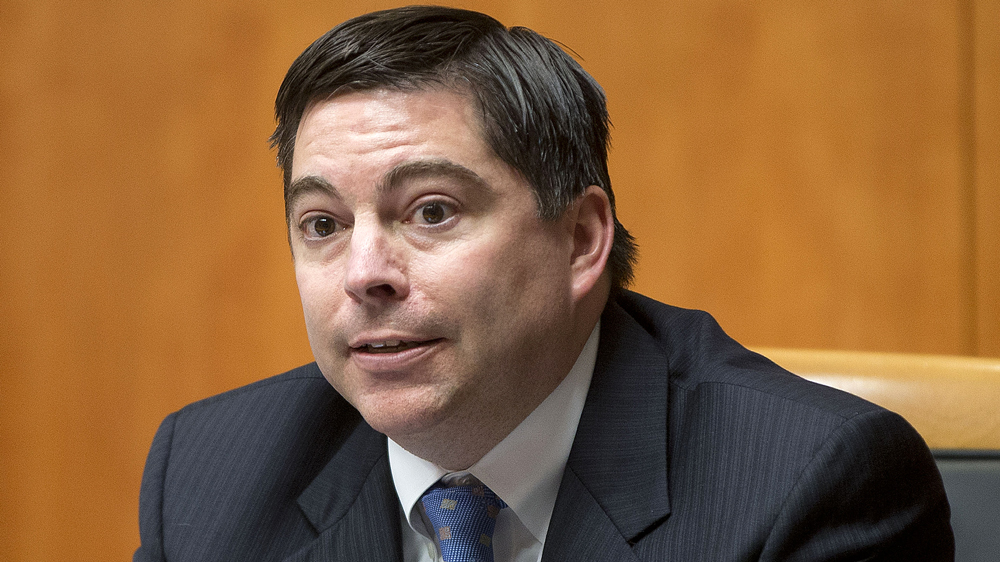FCC Set to Propose Easing of Children’s Television Rules
By Ted Johnson
LOS ANGELES (Variety.com) – WASHINGTON — The on Thursday will take the first step toward easing a set of rules that requires the amount and type of children’s programming broadcasters must provide to maintain their licenses — but the changes have already raised concerns among parents groups.
The rules date to the 1990s, and were put in place after decades of advocacy from parents groups who were frustrated at a landscape of cartoons and live-action shows that were overly commercialized or too full of violence and bluster. But since children increasingly watch on demand or on an array of other platforms, some FCC commissioners say that the restrictions are outdated.
“Not only are they unnecessary, but after over two decades of experience with the 1996 enhanced regulations, there is scant evidence to indicate that children’s programming on broadcast stations has improved,” Commissioner Michael O’Rielly, the chief proponent of the revisions, wrote in a blog post earlier this year.
For much of the 1970s and ’80s, kid vid advocates, led by Peggy Charren of Action for Children’s Television, pushed for requirements on broadcasters to improve their fare for children.
The activism culminated in the passage of the Children’s Television Act of 1990, which mandated restrictions on the amount of time that broadcasters could devote to advertising during children’s programming, and that stations serve the educational and informational needs of kids.
The FCC in 1996 adopted a specific requirement that stations air at least three hours a week of educational or informational children’s programming or face challenges to their license renewals.
O’Reilly said that these requirements no longer make much sense at a time when so many kids are watching on demand, from places like Netflix and Disney Junior, and as an array of other outlets provide an ample amount of educational programming, like the 24-hour channel PBS Kids.
He wrote that “it is hard to conclude anything other than the market for children’s programming is booming.”
“With today’s dynamic media marketplace there are very little, if any, additional benefits provided by the Kid Vid rules,” he wrote.
He also argued that some of the rules — that programs be 30 minutes or more, and that they be regularly scheduled — actually diminished the incentive for broadcasters to develop such programming as “Schoolhouse Rock,” which were presented as interstitials, and the “ABC Afterschool Specials.” The proposal would eliminate those requirements.
FCC Chairman Ajit Pai also seems to agree. He wrote that “as the father of two young children, I know firsthand that the way kids watch video programming these days is very different than when I was growing up. But our children’s television rules haven’t kept up with the times.”
The FCC’s action on Thursday would put the proposal to relax some of the requirements up for public comment.
Action for Children’s Television disbanded in 1992, but other watchdog groups are already expressing concerns that the restrictions will go too far in freeing commercial broadcasters from their educational obligations.
The Parents Television Council’s Tim Winter said in a statement that while the rules need to be modernized , “We cannot help but notice that the document reads like a ‘wish-granting factory’ for the broadcast industry. Each and every bullet point proffers a potential benefit to broadcasters.”
He said the commission “should identify and define the programming needs of children and families; seek input from parents; consider expert testimony from the scientific and education community; and listen to those I’ve spoken to in the programming community who want to produce high-quality E/I content but have been sidelined by broadcasters who anticipate a weakened KidVid obligation.”
A number of other groups, including Common Sense Media and the Campaign for a Commercial Free Childhood, say that the FCC proposal “makes numerous ‘tentative conclusions’ based on no evidence.” Among other things, they say the FCC fails to consider that by reducing educational and informational programming on broadcast television, it could also reduce such shows on Amazon, Netflix, and YouTube, which post kid vid that originates over the airwaves.
Sen. Ed Markey (D-Mass.), who was the House author of the 1990 Children’s Television Act, is urging that the rules be preserved. He has scheduled a press conference for Wednesday.
Proponents of the changes say that stations will still face a mandate to provide children’s programming, but they will have greater flexibility in meeting their obligations. Another proposal is for broadcasters to be able to meet their mandate by relying in part on “special sponsorship” and non-broadcast efforts. O’Rielly noted that “children are just as likely to view content on an iPad as a television set and apps designed for children can be just as informational and educational as programming.”
Among those pushing for the changes are Grover Norquist, president of Americans for Tax Reform, along with representatives of other conservative groups like Americans for Prosperity and ALEC Action.
“Easing these regulations does not mean the end of children’s broadcast programming; rather, it enables broadcasters to enhance the quality of children’s programming to match their competitors,” they wrote in an FCC filing .

